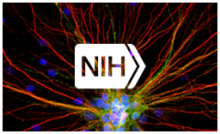
This week, a series of daily blog posts will highlight 28 new and reissued BRAIN Initiative notices of funding opportunities (NOFOs) for 2020. This final post features five opportunities for clinical studies and human neuroscience research. These awards encourage researchers to harness the power of next-generation invasive neural devices, neuroimaging methods, and neuromodulation techniques to advance our knowledge about the brain and brain disorders.
Human Neuroscience and Clinical Studies
RFA-NS-19-001 Research Opportunities Using Invasive Neural Recording and Stimulating Technologies in the Human Brain (Reissue of RFA-NS-18-010; U01)
This NOFO seeks applications to create diverse, integrated, multi-disciplinary teams composed of clinicians, scientists, engineers, and ethicists to pursue high-impact research questions/hypotheses in human neuroscience. Proposed projects must employ innovative invasive devices to record and/or stimulate neurons in vivo. Awardees are expected to join a consortium which will set standards of practice (including neuroethical guidance), collect data for follow-up studies, and disseminate data to the broader neuroscience community. The application receipt dates are June 19, 2020, and October 19, 2020.
The two NOFOs below encourage translational and clinical studies for innovative invasive recording and/or stimulating devices in humans (e.g., Early Feasibility Studies). These awards are part of the Public-Private Partnership Program (BRAIN PPP), which fosters collaborative clinical studies between investigators and manufacturers of novel Class III (invasive, risky) neural devices. Researchers, institutions or businesses developing neural devices or working with manufacturers are encouraged to apply. Non-clinical device testing by an investigator involved in small business pursuits may want to consider the companion NOFO (RFA-NS-022).
RFA-NS-18-021 Next-Generation Invasive Devices for Recording and Modulation in the Human CNS (Reissue of RFA-NS-17-005; UG3/UH3)
This NOFO supports non-clinical testing of a device and one small clinical trial designed to assess the function and final design of a neural device before full-scale clinical trials. Applications are due on February 21, 2020; June 22, 2020; and October 21, 2020.
RFA-NS-18-023 Clinical Studies to Advance Next-Generation Invasive Devices for Recording and Modulation in the Human CNS (Reissue of RFA-NS-17-006; UH3)
This NOFO encourages investigators to pursue a small clinical trial to obtain essential information about the function and design of a neural device. Applications are due on February 21, 2020; June 22, 2020; and October 21, 2020.
Human Neuroimaging
RFA-EB-19-002 Development of Next Generation Human Brain Imaging Tools and Technologies (Reissue of RFA-EB-17-004; U01)
This NOFO aims to support the development of entirely new noninvasive human brain imaging tools. Applicants are expected to propose innovative methods that are ready for full-scale development and dissemination. Examples of projects applicable to this award include, developing new hardware, novel approaches to improving spatiotemporal resolution, and working on behaviorally active human neuroimaging. This NOFO builds upon earlier tool development efforts that began with NOFOs RFA-MH-14-217 and RFA-MH-15-200. Applications are due on September 3, 2020.
Non-invasive Neuromodulation
RFA-MH-20-310 Non-Invasive Neuromodulation – New Tools and Techniques for Spatiotemporal Precision (Reissue of RFA-MH-17-240; R01)
The goal of this NOFO is to develop and test novel tools and neuromodulation methods that supersede existing electrical and magnetic neural stimulation techniques (e.g., ultrasound, electroconvulsive therapy, transcranial magnetic stimulation). Proposals must include devices and/or approaches to overcome existing barriers in the field, such as limited spatial and temporal resolution. Second, this NOFO encourages the optimization of these stimulation methods. Please see the full NOFO for examples of device improvements sought. The application receipt date is February 14, 2020.
Please visit the BRAIN Initiative’s Funding Opportunities webpage for more details on these and other awards. Did you miss earlier posts this week on the 2020 NOFOs? If so, please visit the main BRAIN Update blog webpage here.
